Lyman Hall was son to John Hall and Mary Street Lyman. John Hall was a prominent Connecticut resident, influential in that states early history, particularly with regards to the settlement of disputes between the Mohegan Indian tribes and the settlers. Mary Lyman was the daughter of the Reverend Samuel Street, the first Minister of Wallingford, CT and Anna Miles Street.
Lyman Hall was born April, 12th 1724; his early education included classical and theological training. In 1747 he graduated from Yale and in late December of that same year he was appointed pastor of the Church of Stratford, Ct… He then continued his study of theology under the guidance of his uncle the Rev. Samuel Hall of Cheshire, CT., He finished his studies and on September 20, 1749, he was ordained by the Fairfield West Consociation, but was ordained under the protest by eleven members of the Stratfield Parish Church and five others of the congregation against his ordination.
Mr. Hall’s pastorate lasted only until the summer of 1751, when he was dismissed by the church association from his post at Stratfield Parish, of Fairfield, Ct., after hearing charges against his moral character. The charges were substantiated with proof and of Pastor Hall’s own confession. It must be stated, although the Consociation of Fairfield, removed him from his current pastorate, they had confidence in his repentance and evidence thereof, and voted for his restoration to the ministry. In addition, Hall continued filling vacant pulpits for at least two years longer; in the meanwhile he commenced his medical education and taught school in Fairfield, Ct…
On May the 20th, 1752, Lyman married Abigail the beautiful and accomplished daughter of Thaddeus and Abigail Burr. Although, their happiness was to be short-lived, for on July 8th, 1753 Abigail Hall passed away. The inscription on her Tombstone reads:
“Here lies buried the body of Mrs. Abigail Hall, wife of Lyman Hall, M. A., Daughter of Thaddeus Burr, Esq., died July 8, 1753, aged 24 years.
“Modest, yet free, with innocence adorned,
To please and win, by art and nature formed.
Benevolent and wise, in virtue firm;
Constant in friendship, in religion warm.
A partner tender, unaffected, kind,
A lovely form with a more lovely mind.
The scene of life tho’ short sh’ improved so well,
No charms in human forms could more excel.
Christ’s life her copy; His pure law her guide,
Each part she acted, perfected, and dyed.”
Lyman Hall graduated from Yale in his study of medicine, and married, Mary the daughter of Samuel and Hannah Osborn, of Fairfield, Ct., having one son, John Hall. In 1757 or thereabouts, Dr. Lyman Hall moved to Georgia, in the village of Sunbury, county of Liberty, in St. John’s parish. There he established a medical practice, which became one of the more successful offices in the area, not only for his patients in town, but for miles around, he made house calls in the country side.
Mr. Hall, his wife and his son, became members of the Midway Congregational Church, and though he had a rice-plantation called Hall’s Knoll, a few miles out of town, he built a comfortable home on two choice lots in the village of Sunbury. As well as his income from his practice, he had the profits from his Hall’s Knoll to supply his family’s needs.
Life remained mostly quiet until in July 1774, a Provincial Congress met in Savannah where Dr. Hall represented St. John’s Parish. He was disappointed with the measures adopted by the convention, which elected not to send representatives to the First Continental Congress in Philadelphia. In January of 1775, Dr. Hall represented St. John’s Parish once again. This time the Georgia Congress chose to send a redress of grievances to the King, but did not choose to cooperate with the other colonies in their efforts in Philadelphia. After this the lack of intervention by Georgia, Dr. Hall called a meeting of patriots in St. John’s Parish and those assembled, unanimously elected him to represent them in Congress.
Dr. Hall went to Philadelphia not representing Georgia, but St. John’s Parish alone. He took his seat in May of 1775, he was admitted by unanimous vote by Congress to a seat, but since he did not represent all of Georgia, but only St. John’s Parish, his right to vote was to be determined later on. When the matter was taken up by Congress, Dr. Hall’s was limited to matters that did not require a vote by colony. This did not hamper his seat for long, because finally, the Georgia convention voted to join the Continental Congress on July 15, 1775, and appointing five members, three of whom attended, one of which was being Dr. Lyman Hall. In the congressional session of 1776, Dr. Hall voted for independence on July 2 and for the Declaration of Independence on July 4. He signed the parchment copy along with most of the other delegates on August 2.
In January of 1779, the British captured Sunbury; Dr. Hall’s home and his plantation, Hall’s Knoll was destroyed. He was accused of high treason and he and his family escaped to the north, staying in Philadelphia until the end of the war. Each year through 1780, Dr. Hall was reelected to Congress.
Lyman Hall returned to Georgia in 1782, there he took up his medical practice again and began the rebuilding of his plantation. The following year he was elected to the Georgia House of Assembly, which in turn, elevated him to Governor for one year. While Governor, Dr. Hall championed the founding of a state university which would focus on religious education for increasing the moral virtue of the citizens of the state; this act in 1785, led to the founding of the University of Georgia.
In 1785 Dr. Hall sold Hall’s Knoll; that same year in Chatham County, he served as a judge of the inferior court. He bought the Shell Bluff rice plantation in Burke County in 1790, where he died on October 19 of that year. Dr. Hall was buried on the Shell Buff Estate, but in 1848, he was re-interred in front of the courthouse on Greene Street in Augusta, Georgia, beneath a monument.
The Reverend, Doctor Lyman Hall was survived by his wife, Mary, who died in November 1793. His only child and son, John Hall, died shortly after and had no children of his own.
Lyman Hall, Christian, Minister, Politician, Doctor, husband and father, a signer of the Declaration of Independence and a great founding father of the USA.
By Steve Williams
Resources for this biography of Lyman Hall:
- Liberty County online biography of Lyman Hall located at: http://www.thegagenweb.com/galiberty/hall.html.
- The Lives of the Signers of the Declaration of Independence by Nathaniel Dwight, 1852.
- The American Monthly Magazine, published by the Daughters of the American Revolution, volume 22, January through June, 1903.
- The Revolutionary War and Beyond website, the Lyman Hall biography located at: http://www.revolutionary-war-and-beyond.com/lyman-hall.html.
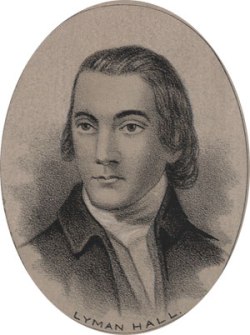
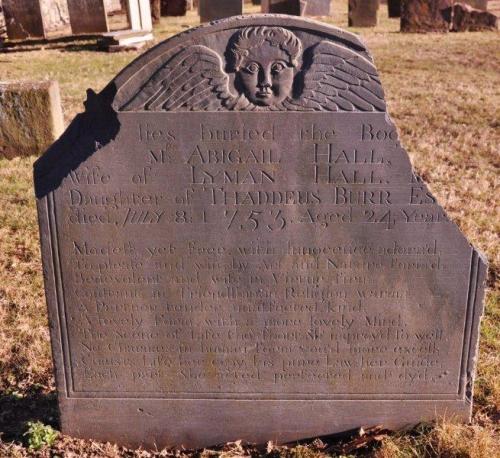
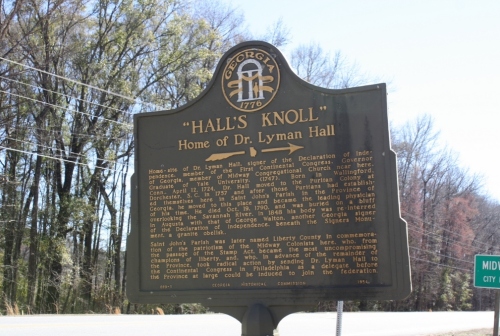
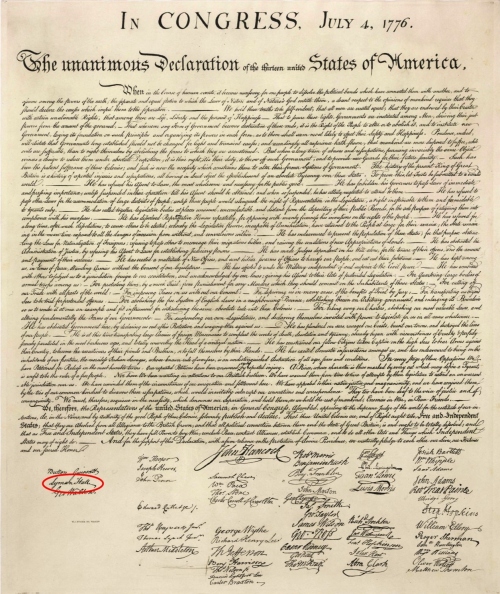
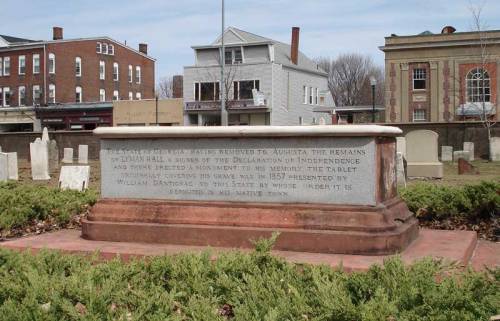
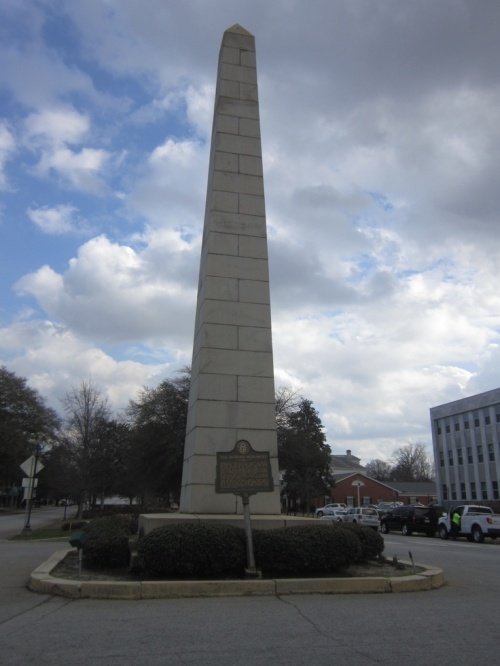
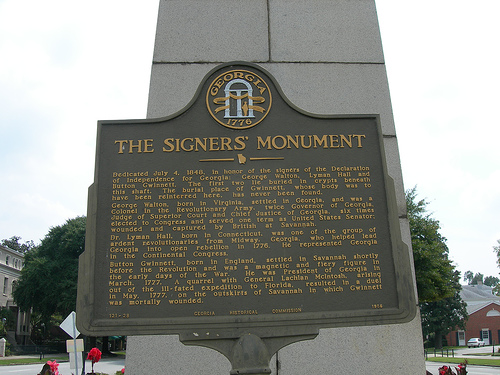
Reblogged this on The Christian Conservatives Network.
LikeLike